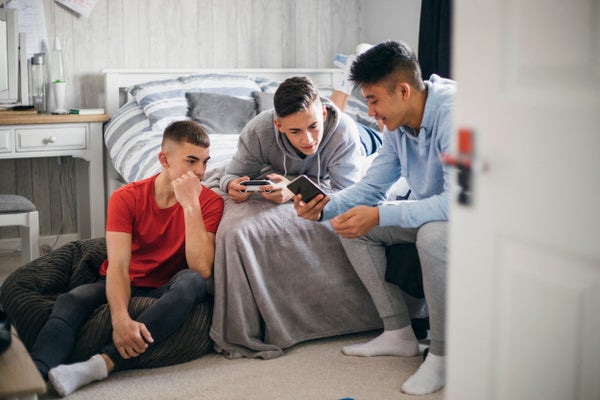This article was published in Scientific American’s former blog network and reflects the views of the author, not necessarily those of Scientific American
Stopping the spread of infectious disease demands that we meet people where they are: on their screens. As the coronavirus COVID-19 global health emergency continues, better public health engagement, through entertainment, could be a key strategy for successful intervention.
The CDC and WHO have worked hard to make health information shareworthy and easily accessible. But that’s not enough. Our story-hungry population needs innovative public health narratives that people can easily engage with through mobile devices.
Evidence supporting this kind of public engagement already exists. Recently, more than 130 million players managed to crash the Web site of the mobile video game Plague Inc. as concerns about the COVID-19 crisis skyrocketed. Ndemic Creations, makers of the game, issued a statement directing players to seek coronavirus information from health authorities, rather than from the game itself. “[W]henever there is an outbreak of disease we see an increase in players, as people seek to find out more about how diseases spread and to understand the complexities of viral outbreaks” explained the game’s creators.
On supporting science journalism
If you're enjoying this article, consider supporting our award-winning journalism by subscribing. By purchasing a subscription you are helping to ensure the future of impactful stories about the discoveries and ideas shaping our world today.
In Plague Inc., players can create disease outbreaks, manipulating global conditions until the disease reaches pandemic proportions. The CDC and other health organizations have praised Plague Inc. for its ability to raise awareness of infectious diseases, while maintaining an evidence-based approach. In 2019, Plague Inc. was ranked by Apple’s popular games as no. 1 in France, no. 2 in Australia, Brazil and Germany and no. 3 in the U.K. and U.S. There have so far been 700 million games played in Plague Inc.
Similarly, the 2011 pandemic thriller Contagion, directed by Steven Soderbergh, recently surged to the top of Google searches, Twitter mentions and iTunes downloads. Many cite the uncanny similarities between COVID-19 and the film’s fictional “MEV-1” virus, explaining the renewed interest in the film. Soderbergh’s character-driven narrative, featuring Matt Damon and Marion Cottillard among others, offers a far more compelling form of content than sterile infographics. Audiences appear to be willing to sit through hours of content if the story is good enough. We just need the right story.
It’s time to flip the script on infectious disease prevention. Increasingly, audiences seek content that allows them to be a part of the story and therefore a part of the solution. We need entertainment that activates our agency. The COVID-19 outbreak is an opportunity to reinvent public health engagement and use entertainment as a means for pandemic prevention. Now is the time for silo-busting partnerships between entertainment and science to fight the COVID-19 outbreak and create a new public health narrative.
Contagion’s success comes from its engaging storyline but also from its collaboration with the scientific community. Writer Scott Z. Burns consulted with epidemiologists, virologists and public health experts to craft a tale of viral infection that was both realistic and compelling. The filmmakers and scientists were able to co-invent an engaging piece of content that contextualized health information in a story that everyone could relate to.
Plague Inc.’s pandemic game play combines the best of storytelling with accurate scientific scenarios. It empowers players with choices that reinforce the learning of how outbreaks spread and what effective public health promotion efforts look like. Plague Inc.’s creator has committed to ongoing collaboration with the public health community, continuing to work with health organizations around the world to engage the public.
Public health deserves a story that is as compelling, empowering and cinematic as today’s best TV shows. With COVID-19’s unprecedented effect on our global community, it’s time we co-create a story with a new solution for all.
It’s time to use the power of entertainment to help with pandemic prevention.
Read more about the coronavirus outbreak here.
